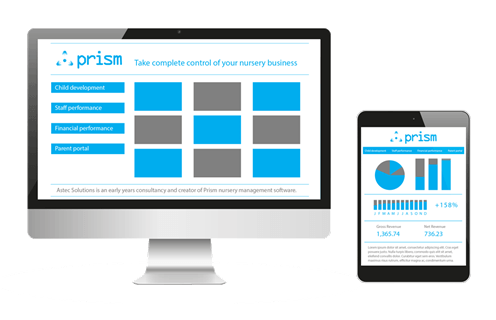Unmotivated, uninterested, underachieving and underperforming. If these are words that you apply to your team, it’s about time you did something about it! However, there is no quick fix.
Practitioners have a demanding and multifaceted job. Throughout the course of the day, they have to wear many hats, ranging from educator to cleaner and from peacekeeper to customer service. Quite simply, your workplace cannot function without them.
This is why they are your most important resource.
But with ever more pressure on practitioners, it’s hard to get the most out of them while keeping the smile on their face. Although small gestures, such as the gift of cake, can bring moments of happiness, they are not a sustainable solution to developing a motivated workforce.
Instead, you need to create a working environment in which everyone genuinely feels valued, knows that they can progress and is supported accordingly. When you foster the conditions that create in your team an intrinsic motivation – a want to work, to achieve and succeed that is independent of edible or financial reward – you will be able to unlock the potential in your staff.
So, how do you create this working climate?
1. Empower your staff
Giving trust and ownership back to your practitioners not only makes them feel valued, it encourages self-motivation. People are more likely to work for something that they feel is their ‘own’. If practitioners feel they have freedom to choose, direct, shape and mould practice, it enables them to develop as individuals. In practice, you can do this by giving a practitioner autonomy in their planning and by giving them freedom to fully explore individual learning paths. If you do not think a member of your team is quite ready, you can simply involve them in decision making about their classroom.
Just like you with a child’s interests, you can play to a practitioner’s strengths. Make them an “expert” in their area of specialism and give them a related and recognised role and responsibility. This will not only see them develop professionally, it will improve quality setting-wide. In a sector whose workforce is already suffering from low self-esteem, giving practitioners a chance to feel they are an experts will give them a huge confidence boost. It’s also a great first step towards developing tomorrow’s leader.
2. Get them excited

People who are inspired are inspirational and breed motivated people. This starts with management. If you as a leader can outwardly show excitement and enthusiasm, staff are likely to follow suit. We all have days when it’s hard, but if we expect our staff to be enthusiastic, we should expect it from ourselves too!
Remaining positive is key. We’ve all seen how negativity destroys teams: it extinguishes motivation and it quickly spreads. You need to communicate on a daily basis, both informally – for example, reminding people that they have done a great job – and more formally to make sure everyone understands their contribution. It helps to have a designated person to talk through concerns with (eg. a team leader) so that an issue can be solved before it becomes a problem. With a clear ‘communication chain’ and with a professional protocol, you’ll be able to remove issues from the shop floor so that staff are focused on the important work of caring for children.
Another vital element is keeping things new. Instead of imposing a new approach, encourage your team to seek out and try different things. Ideally, you want to create a researching culture where practitioners are given time and space to find new things to do or ways to totally transform an environment. When this is built into your structure, practitioners will be more engaged and, as a result, children more keen to learn.
3. Lead
Empowered and excited staff can only come about when there is an effective leader who supports individuals and creates a positive learning culture.
By knowing your team inside out and understanding their strengths and weakness, you can start to support them effectively. Together, you can create professional next steps and plan how to get them there. As leaders, we have a duty of care to staff as well as children; we need the same diligence in both our duties.
To make this achievable, consider altering the roles and responsibilities of a ‘team leader’. Instead of having a team leader who is a practitioner/key person with extra responsibilities, make your team leader’s first and foremost responsibility to lead and support your staff. That means no key children, no expectation to deliver activities and no preparing learning journeys. This way, all of their time can be used supporting staff before, during and after activities – to share their expertise and to nurture the team.
A culture and working environment that allows staff to flourish
When staff have control and authority over their work and are an active partner in managing their own performance, they feel empowered. When teaching is fun and things are new, work is exciting and worth coming to. When staff have a paradigm example of a leader – someone trusted who can show them the way and gives them the opportunity and support they need to progress – they’ll feel more motivated than ever before.
Remember that it is about ultimately about people. Give them the opportunity to grow and, just occasionally, give them cake.
Heather Stallard
Latest posts by Heather Stallard (see all)
- Vision, values & clarity - 7 January 2016
- Parental Partnerships – the conversations we’re not having - 10 November 2015
- Quality improvement in process: adopting BEEL and EEL - 13 October 2015




Recent Comments